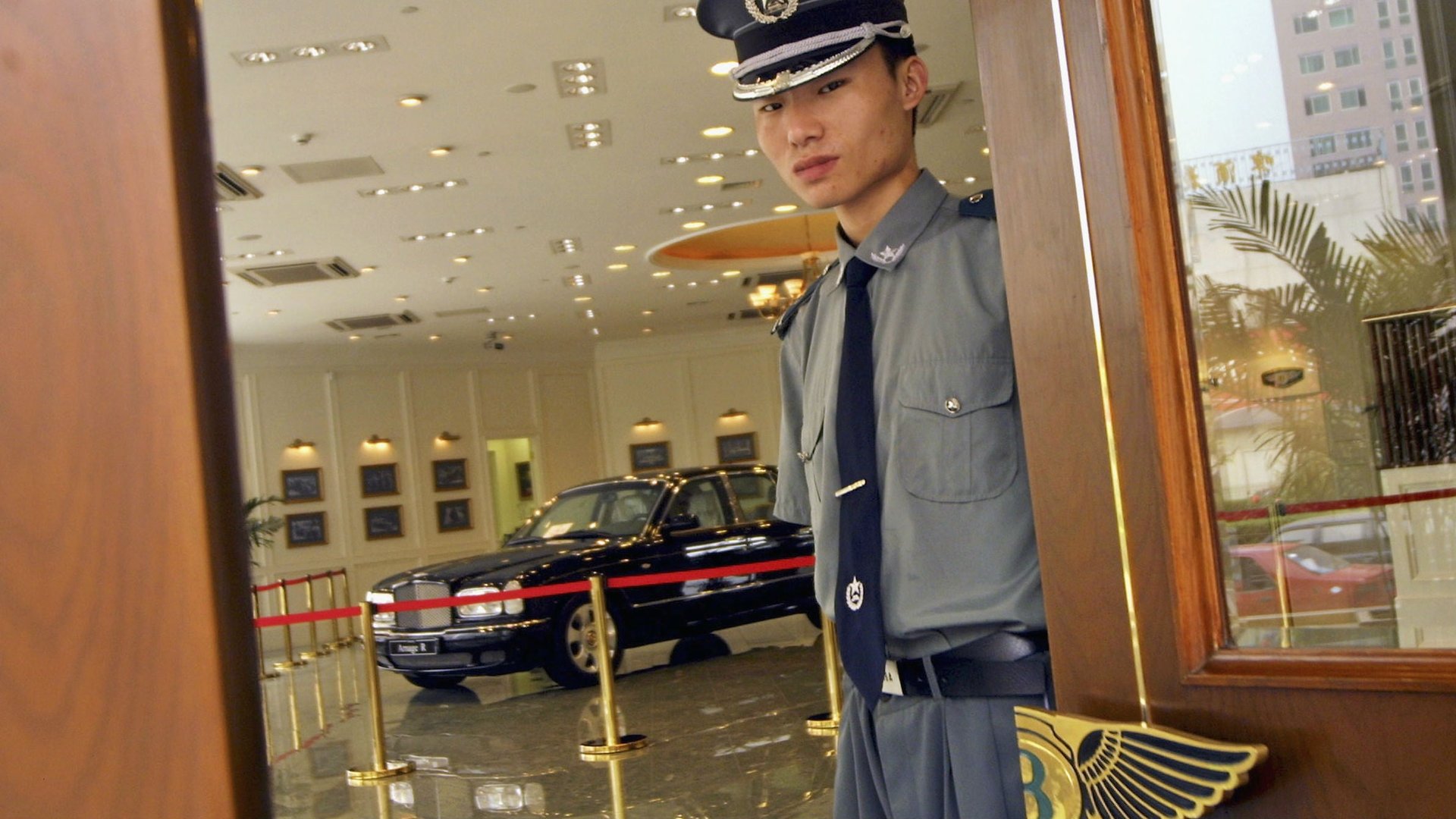China just made it harder to buy a Beamer, Benz, or Bentley
Times are tough for Volkswagen. The carmaker reported profits for the first quarter of the year were almost half what they were a year ago. But a bit of good news, the company noted in a statement earlier this month, is that sales of Bentleys grew 25% year-on-year, fueled by Chinese customers, who bought second-highest number of the luxury car after buyers in the US.


Times are tough for Volkswagen. The carmaker reported profits for the first quarter of the year were almost half what they were a year ago. But a bit of good news, the company noted in a statement earlier this month, is that sales of Bentleys grew 25% year-on-year, fueled by Chinese customers, who bought second-highest number of the luxury car after buyers in the US.
Auto sales in China have soared in the past decade, and the country is widely expected to become the world’s biggest luxury car market by 2016. Volkswagen says its newest model of the Flying Spur, the top-selling Bentley in China, should help “maintain substantial growth for the rest of 2013,” when it goes on the market later this year.
Unfortunately for Volkswagen and other luxury carmakers, the Chinese government is making it less appealing to own a luxury car among one key bloc of shoppers: Chinese government officials. Military license plates, which give drivers near impunity on the road, can no longer be registered to Bentleys, Porsches, or the Volkswagen Phaeton, unless those cars are actually owned by the Chinese military. (Luxury cars and military plates are often given to or bought by officials outside of the military.) The new rule goes into effect on May 1.
The measure also includes cars by Mercedes, Jaguar, BMW, and Cadillac. (Beamer, Benz, or Bentley? How about none of the above?) It’s part of a larger campaign against conspicuous luxury consumption among government officials undertaken by China’s new leaders in a bid to crack down on corruption. But it may hit cars the hardest. The government has already said some government agencies cannot buy from foreign auto brands.
The upside for VW is that China appears to have stopped short in its luxury car crackdown. Audi sedans, made by Volkswagen and by far the favorite and most common car for Chinese government officials, don’t appear to be included in the new restrictions on military plates.